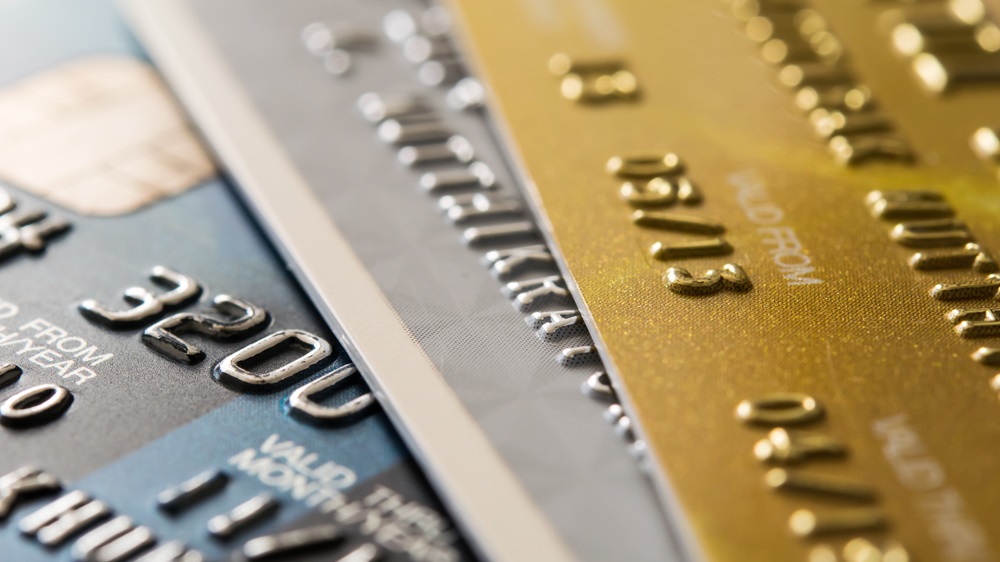You've heard of ID fraud. You're pretty sure you know what identity theft is. And you know someone who has had their credit card stolen. But aren't they all the same thing - three sides of the same problem?
In a way, yes, they are. But the differences between identity theft, credit card theft, and ID fraud can help you appreciate what each is, spot the risks to you, and act accordingly.
- We've highlighted the best password manager
- Protect your privacy online with one of the best VPN services
- These are the best anonymous browsers on the market
What is identity theft?
This is perhaps the simplest definition. Identity theft is essentially self-descriptive - it means a person's details are stolen. That person might be an adult, a child, or even deceased. Identity theft relies on enough stolen data that someone can convincingly pose as the victim.
These days, identity theft is mainly considered an online crime, but there are plenty of offline methods to steal an identity. For example, an identity thief might check your rubbish for discarded statements and other financial information. They might steal your post to learn information about you. Thieves can also steal what they need from your wallet or purse. Driving license, credit card, a membership card for a public body - these are enough to learn enough about you to take out credit in your name.
Stealing someone's identity in person requires more effort than sitting behind a computer. Increasingly, identity theft is becoming an online crime, with phishing emails and instant messages leading people to innocently hand over their login data for banks and credit card websites, conned into thinking the websites are legitimate. Phishing is a key feature of online identity theft, although it can just as quickly be executed over the phone.
An identity thief needs your name, date of birth, and address to get started. This information can be enhanced with social media activity. For example, a scammer might check your Facebook account for talking points about what you've been doing to seem utterly convincing as they take out a loan in your name.
Suspect your identity has been stolen? Contact your bank, credit card company, and, if necessary, the police.
What is ID fraud?
Once identity theft is successful, ID fraud can take place. This is the practice whereby identity theft fools a bank or credit card company into handing over money and information about the victim.
It is essentially fraud achieved with someone else's identity.
ID fraudsters can use your details to open a new bank account, apply for new credit cards and loans, acquire state benefits, order goods, take out a mobile phone contract, take over your existing bank, credit, and property accounts, and even grab legitimate duplicates of your official documents. This includes things like passports and driving licenses.

What is credit card theft?
If a criminal doesn't have the time or resources to steal your entire identity, they might prefer to swipe your credit card. Debit cards are also included in this type of theft.
There are three main types of card theft: physical theft, cloning, and skimming. If your wallet is stolen, then physical robbery has occurred. A card can be cloned following physical theft, or the data is simply skimmed from it and stored in a database. Here, it awaits downloading a new fake card which can then be used as a genuine credit card.
Skimming is a crucial risk of paying by credit card. Skimmer technology is a compact method of copying the data stored on your credit card. The data can then be used to buy goods or services charged to your account. Unfortunately, not only is there potential for restaurant and café employees to carry skimmers, ATMs and gas station "pay at the pump" systems are prone to interference. Usually, this means the installation of a skimmer.
Credit card theft naturally leads to credit card fraud. Here, goods might be obtained using the card and delivered to a remote location, such as an industrial estate unit. Alternatively, money might be transferred (through a fake "payment") to an account managed by the criminal.
The differences between ID fraud, identity theft, and credit card theft
Now you know and understand what ID fraud is, along with identity theft and credit card theft. The differences should be pretty clear, but if not, here's a recap:
- ID fraud is fraudulent activity (taking out loans, extending credit, even acting in an official capacity) using someone else's stolen identity.
- Identity theft is the act of stealing an identity. It might be done offline or online. Identity can also be bought or sold online - some are stolen to order.
- Credit card theft encompasses credit cards and debit cards. It refers to stealing (or duplicating) a card to use it for personal gain or transferring the balance to another account with a fake payment.
All these things are bad, but you can reduce your exposure to them:
- Dispose of old bank statements and correspondence
- Keep important documents safely locked away
- Reduce social media activity and friends
- Set a different password for every account, using a password manager
- Enable two-factor authentication where available
- Set a secure PIN or fingerprint authentication on your phone
- Subscribe to SMS balance alerts with your bank and credit card provider
- Sign up for monthly credit reports to check for credit applications in your name

ID fraud, identity theft, and credit card theft: Three sides of the same problem
The theft and subsequent fraud explained here are all linked. Not having a credit card won't stop identity fraud. Going off-grid won't prevent identity theft. These are aspects of modern life enhanced by our reliance on instant connectivity into simultaneous benefits and threats.
Be aware of the differences between ID fraud, credit card, and identity theft. But remember that the issues are linked, and behaving in a manner that keeps your data personal will help considerably.
- We've also highlighted the best identity theft protection
from TechRadar - All the latest technology news https://ift.tt/wuoVlmM







No comments:
Post a Comment